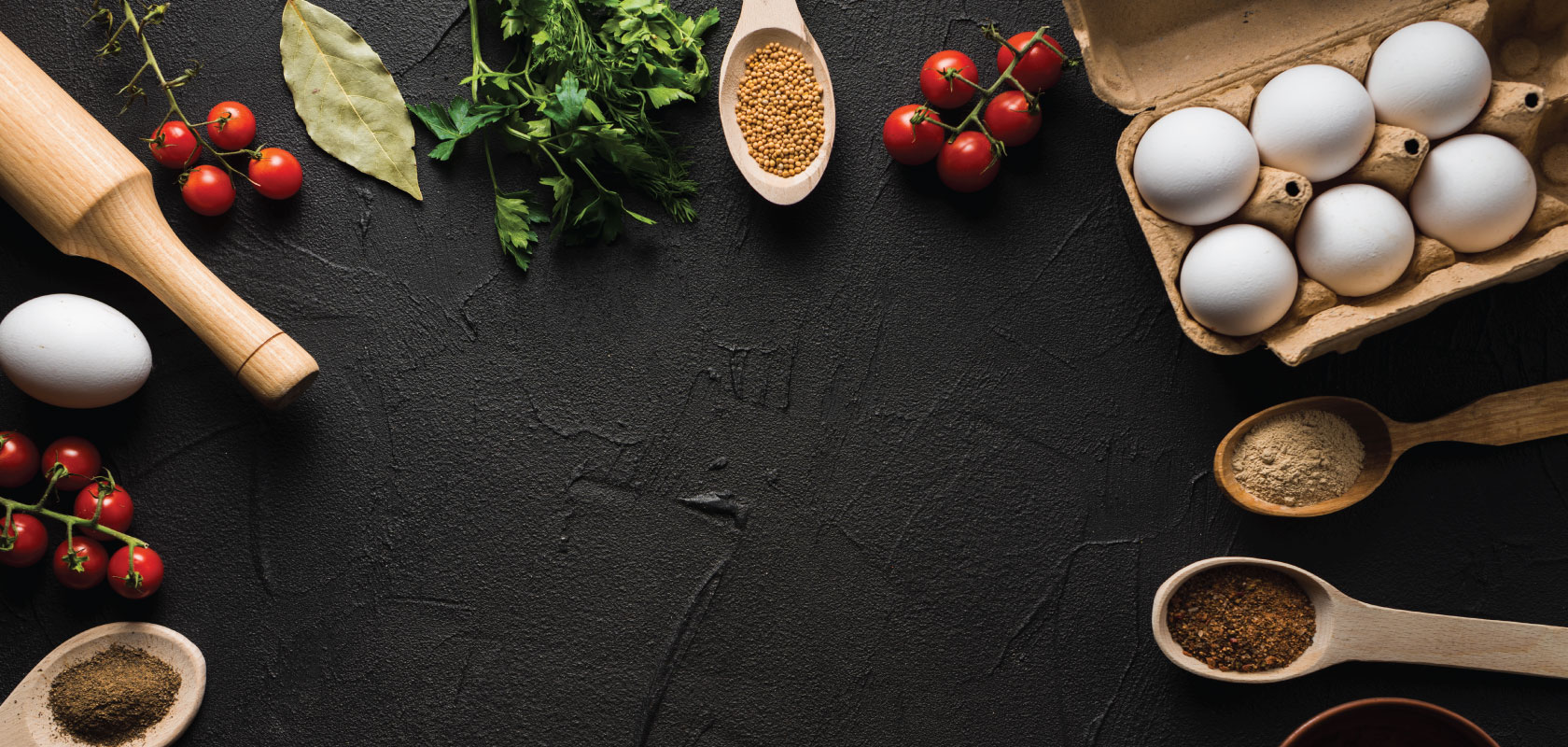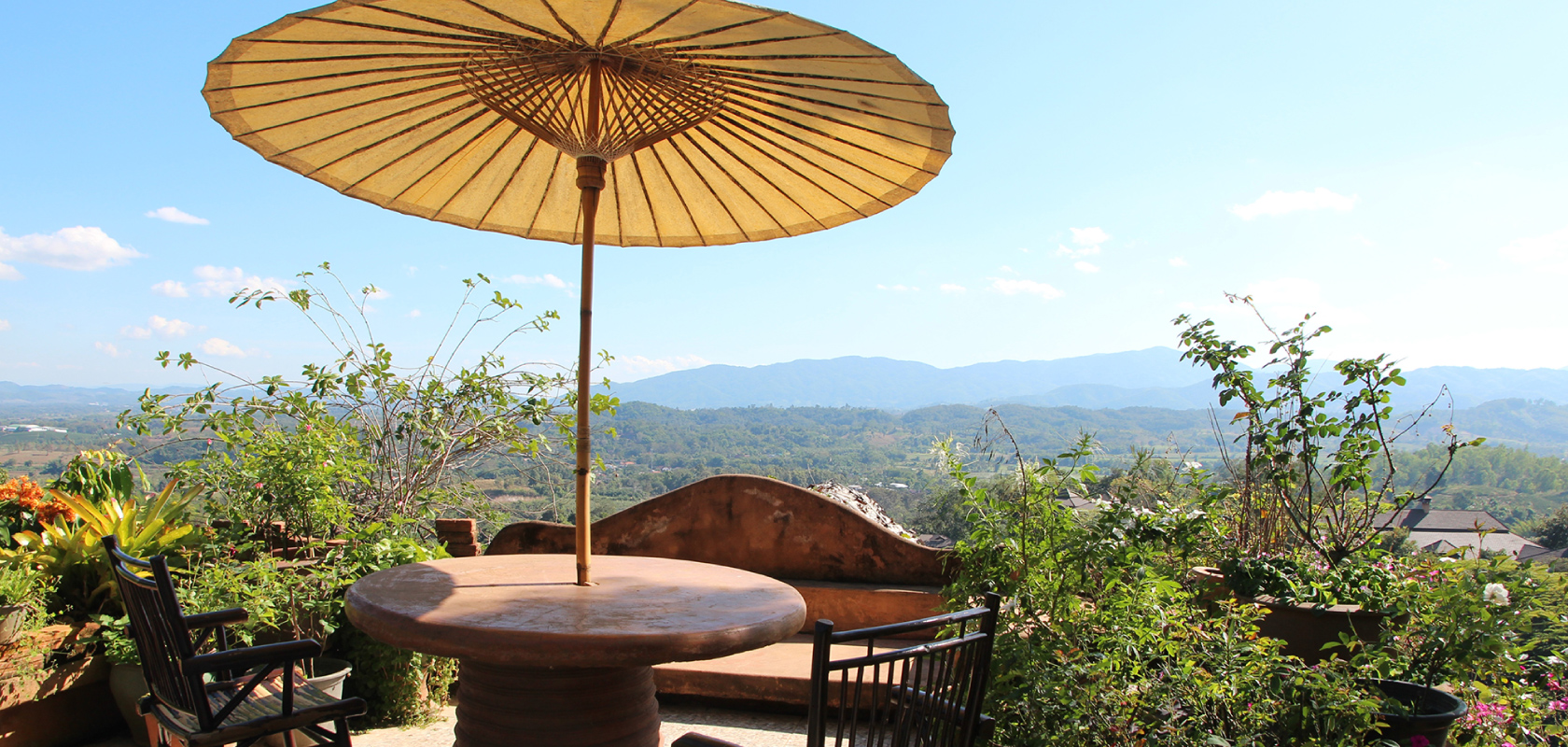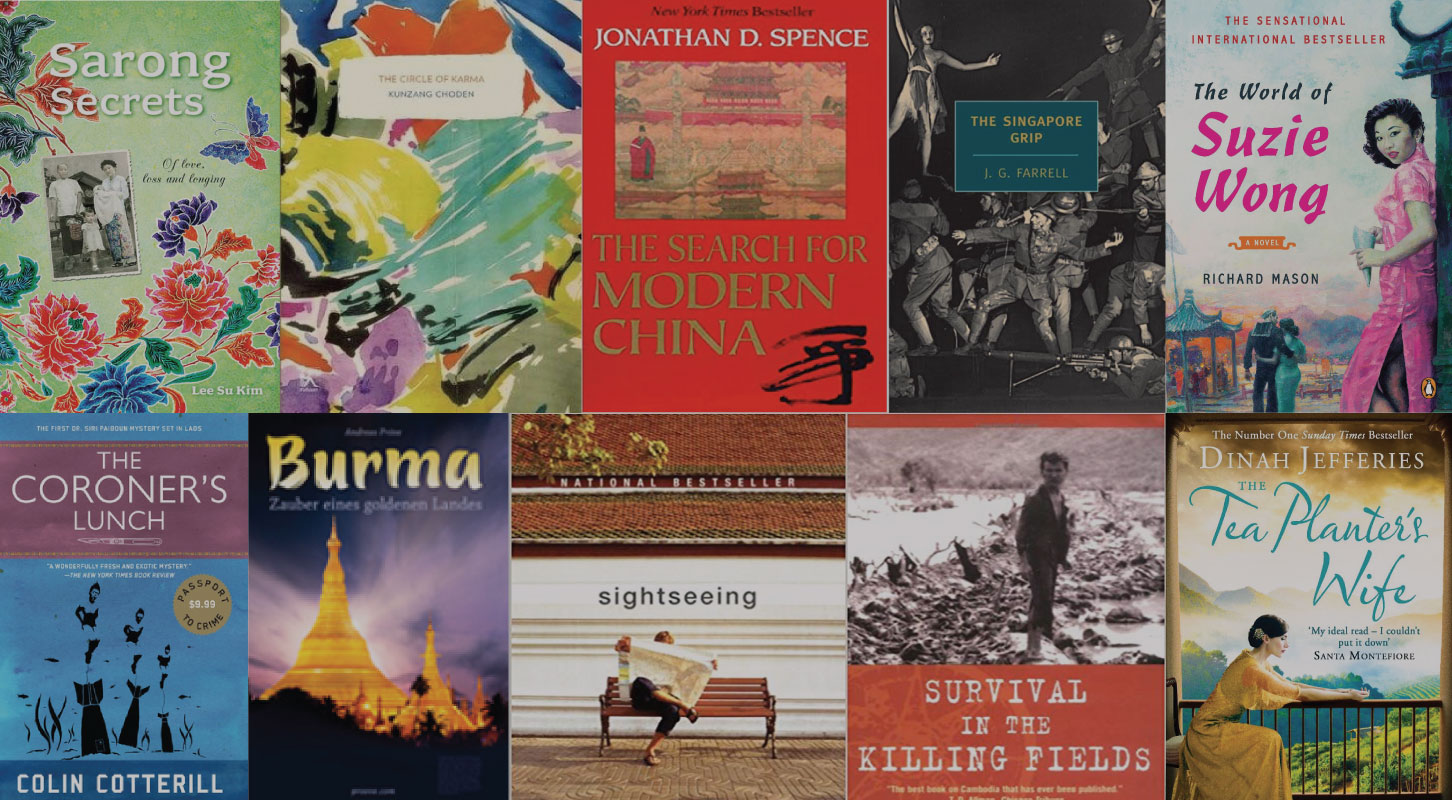Getting tired of the same recipes on rotation? You may not be able to travel through Asia right now but we can bring the flavours of Asia to you!
Add some spice into your kitchen with these traditional – and tasty – recipe recommendations. Check out our picks below.
[showimage url1=”https://www.diethelmtravel.com/wp-content/uploads/2020/04/Recipe_Beef-Pho.jpg”]
VIETNAM
Beef Pho (serves 4)
Vietnamese dishes make the most of fresh herbs, pungent fish sauce and a commitment to each dish having a balance of the five flavours: spicy, sour, bitter, salty and sweet. Pho – the famous rice noodle soup topped with herbs – is by far one of the country’s staple dishes and often eaten for breakfast.
For the broth:
- 1kg beef bones
- 3 litres water
- 1 piece ginger
- 2 star anise pods
- 2 cinnamon sticks
- 1 whole white onion
- 1 cardamom pod
- 2 shallots
- 2 teaspoons salt
- 2 teaspoons sugar (rock sugar is best)
Directions:
Add water to a large stockpot and bring to boil. Grill the beef bones in a pan (to reduce the fat) for about 4 minutes and add to stock. Grill the remaining broth ingredients for around 2 minutes and add to them to the stock. Add the salt.
Softly simmer the stock for at least 1 hour, regularly skimming off any fat from the top.
For the pickles:
- 1 cup of white vinegar
- 3 cloves garlic peeled
- 3 shallots peeled
- 1 red chilli
- 1 green chilli
- 1/2 teaspoon salt
- 1 teaspoon sugar
Directions:
Add vinegar to a small bowl. Chop ingredients into small, similarly sized pieces (i.e. cut the garlic clove into 4 pieces). Place all the ingredients into the vinegar, stir for 30 seconds and let sit.
Optional herbal toppings:
- Spring onion
- Asian basil (commonly known in the west as Vietnamese mint)
- Sawtooth coriander
- Vietnamese celery
- Lime
- Bean sprouts
Additional ingredients:
- One pack of thin rice noodles or vermicelli (prepared following package instructions)
- 300g beef filet, finely sliced and grilled
To serve: Top the noodles with a few slices of beef, cover with the stock and some sliced spring onion. Add the rest of the fresh herbs and pickles to taste.
[showimage url1=”https://www.diethelmtravel.com/wp-content/uploads/2020/04/Recipe_Cantonese-style-Sweet-and-Sour-Pork.jpg”]
HONG KONG
Cantonese-style Sweet and Sour Pork
For a city that has been a crossroads of cultures since its inception, it is no wonder that Hong Kong’s kitchens fuse the flavours of different countries and regions. In the colonial period, people arrived in Hong Kong from all over China bringing their regional styles of cooking with them and later blending them together. This recipe is a classic.
Ingredients:
- 250g pork ribs (lean pork or pork tenderloin will also do) cut into sections about 1.5 inches thick
- 1 egg
- 1/4 cup flour
- 1/4 cup corn starch
- 1 red bell pepper
- 1 green bell pepper
- 1/2 teaspoon salt
- A dash of Chinese cooking wine (Shaoxing wine)
Sauce:
- 100g tomato ketchup
- 1 small can diced pineapple
- 1 teaspoon sugar
- Some green onions
Preparing the fried ribs: Mix the chopped ribs with the egg, flour and salt in a bowl. Heat up some oil on medium heat. Fry the ribs until golden on the outside. Remove from the oil when done (at least 10 minutes), drain on kitchen towels and then set aside.
Preparing the sauce and plating: Cut up the green onion into 2- to 3-inch sections. In a frying pan, heat 2 tablespoons of oil. Stir in the green onions, diced pineapple, bell peppers and continue to stir, cooking for 4-5 minutes.
Add the ketchup and all of the juice from the pineapple can. Bring to a boil and add the pork.
Finally, add the sugar and a dash of Chinese wine and stir thoroughly. Taste and add more sugar as needed.
The dish should be very bright in colour, sweet and just a little sour in flavour. Pork should be crisp on the outside and tender on the inside.
[showimage url1=”https://www.diethelmtravel.com/wp-content/uploads/2020/04/Recipe_Bak-Kut-Teh.jpg”]
SINGAPORE
Bak Kut Teh
Situated at a historic cultural crossroads and home to centuries of Chinese, Malay, Indian and Eurasian peoples, Singapore has drawn on a nearly endless array of cultural and gastronomic influences making up unique fusion dishes that can now only be considered “Singaporean.” Some of Singapore’s most iconic local dishes, including Hainanese chicken rice, laksa (a Peranaken-inspired spicy seafood noodle soup), and bak kut teh (a hearty Teochew-inspired pork rib soup) are recognised just as highly as meals in high-end restaurants.
Ingredients:
- 800g pork ribs
- 2 litres water
- 10g angelica root
- 5g Sichuan lovage rhizome
- 1 head garlic, peeled
- 1 cinnamon stick
- 1 star anise pod
- 5 cloves
- 2 tablespoons dark soy sauce
- 1 tablespoon soy sauce
- 2 teaspoons salt
- 1 teaspoon sugar
- 8 fresh shiitake mushrooms with stems removed and cut into bite-size pieces
- deep-fried tofu, blanched in hot water and cut into bite-size pieces
- 1 tablespoon wolfberry fruit
Chilli and garlic soy sauce (mix the following together)
- 3 green Thai chillies
- 3 red Thai chillies
- 3 cloves garlic
- 3 tablespoons soy sauce
Directions:
In a pot, add all the ingredients except the pork ribs and bring the broth to a boil over high heat. Add the pork ribs to the pot and bring to a boil again. Lower the heat to medium and let everything simmer for 35 minutes.
Turn off the heat and cover for 10 minutes. Serve hot, with rice.
[showimage url1=”https://www.diethelmtravel.com/wp-content/uploads/2020/04/Crispy-morning-glory-salad.jpg”]
THAILAND
Spicy Thai Morning Glory Tempura (Yum Pak Boong Grop)
Morning glory, also known as water spinach or pak boong in Thai, is a common green found throughout Southeast Asia often used in soups or stir-fries. This Thai-style salad showcases morning glory in a different way though…crunchy and deep-fried then drizzled with a sweet and tangy sauce!
Ingredients:
- 100g morning glory cut into bite-size pieces
For the batter
- 1/2 cup cake flour
- 1/2 cup rice flour
- 1/2 cup mung bean flour
- 2 tablespoons coconut milk
- 300ml icy cold water
- 1/2 teaspoon baking powder
- 1 egg yolk
- 1/2 teaspoon salt
For the dressing
- 80g ground pork
- 15 medium-size shrimp, shelled and de-veined
- 50ml water
- 2 tablespoons fish sauce
- 1 tablespoon palm sugar
- 1/2 tablespoon of Thai roasted chilli paste
- 1 1/2 tablespoons concentrated tamarind sauce
- 4 medium shallots, thinly sliced
- 4 red chillis, thinly sliced
- canola oil for deep frying
Directions:
Bring water to a boil and cook the ground pork until done. Next, add in the shrimp and cook until just about done (a minute or two depending on the size of the shrimp). Remove from the heat when the shrimp is still slightly undercooked. The residual heat will keep cooking it and it will be perfect when you assemble the dish.
Add in the rest of dressing ingredients and mix well.
To deep-fry the morning glory, mix all the batter ingredients in a mixing bowl to create a thick batter. Then, heat a pot of oil and dip the morning glory in the batter, fully coating it before deep-frying over medium-high heat.
You can deep fry 4-5 pieces of morning glory at a time depending on the size of your pot, but be careful not to overcrowd your pot.
Ladle the dressing over fried morning glory, serve with steamed rice.
[showimage url1=”https://www.diethelmtravel.com/wp-content/uploads/2020/04/Recipe_Fish-Amok.jpg”]
CAMBODIA
Fish Amok
This classic Khmer dish, which can also be made with other types of protein or vegetables, is usually steamed and served in a banana leaf with a little coconut cream on top.
Ingredients
- 200g snake head fish fillet
- 100g sliced young morinda citrifoli leaves (or cabbage)
- 1 tablespoon “kapi” (fermented shrimp paste)
- 1 tablespoon fish sauce
- 2 cups coconut milk
- 1 teaspoon sugar
- 1 teaspoon oil
- 1 egg, beaten
- 1 egg white
- “Kroeung” or spice paste
- 2 dried red chillies, soaked, drained and chopped into small pieces
- 3 garlic cloves
- 2 tablespoons grated galangal
- 1 tablespoon sliced lemongrass stalk and zest of kaffir lime
- 3 kaffir lime leaves, thinly sliced
- 3 bird’s eye chillies
Directions:
This recipe is best achieved with a steamer.
First prepare ingredients – in a mortar, put dried chillies, garlic cloves, galangal, lemongrass stalk, kaffir lime zest and leaves, bird’s eye chillies and pound to form a paste. This is the kroeung or spice paste. Thinly slice the fish fillet into small pieces.
Heat the oil in a pan on medium heat. Once hot, add the spice paste and stir for about 1 minute until fragrant. Add in fish and gently stir until cooked.
Add coconut milk (leaving 3 tbsp. for later use), egg, sugar and fish sauce. Stir gently for 5 minutes until thickened. Take off heat and set aside.
In a small bowl, put the sliced morinda leaves at the bottom and fill up three quarters of the way with the fish mixture.
In a separate bowl mix the egg white with 3 tablespoons coconut milk. Fill up the fish-filled bowl with mixture and stir to make even.
Steam the bowl for 20 minutes until the coconut milk is solid, but still moist. Serve hot with rice.
[showimage url1=”https://www.diethelmtravel.com/wp-content/uploads/2020/04/Recipe_Kin-Paung-Kyaw-02.jpg”]
MYANMAR
Fried Spring Onion (Kin Paung Kyaw)
Featuring the finest Inthar and Shan cuisine on Inle Lake, this recipe from the kitchens of Inle Heritage Stilted Houses was passed down from one of the chef’s grandmothers and makes a tasty snack or starter.
Ingredients:
- 10 spring onions, roughly chopped
- 100g rice powder
- 50g sticky rice powder
- 1 tomato, sliced
- 1 onion, peeled and sliced
- 3 cloves garlic, peeled and pounded
- 15g ginger, pounded
- 1/2 teaspoon salt
- 1 teaspoon paprika powder
- 1 litre oil, for deep-frying
- 100ml water
Directions:
Cut the green parts of the spring onion into 3-centimetre pieces and roughly chop the white ends. Pound garlic and ginger into a smooth mixture. In a bowl, place spring onion, tomato, onion, rice powder, sticky rice powder, paprika, garlic, ginger and salt. Slowly add water while mixing by hand. Everything should stick together.
In a medium-sized wok, heat the oil. Place heated tablespoons of the mixture into the hot oil and deep-fry over medium heat, turning occasionally, for about 5-8 minutes or until crisp and golden brown. Place fritters in a strainer to get rid of excess oil and drain on paper towel. Serve as a snack with tamarind sauce.
Tamarind Dipping Sauce
- 30g tamarind
- 120ml hot water
- 2 teaspoon sugar
- 2 small garlic cloves, peeled and pounded
- 8g ginger, pounded
- 1/2 teaspoon chilli powder
- 2 tablespoons chopped coriander
Soak tamarind in hot water for a few minutes. Break it up a little with a whisk, then set aside until cool enough to handle. Using your hands, crush and mix tamarind in water until thoroughly mixed. Squeeze the pulp by hand, then stir and strain to remove solids. Add pounded garlic and ginger, chilli powder, salt, sugar, coriander and stir. Set aside until ready to serve.
[showimage url1=”https://www.diethelmtravel.com/wp-content/uploads/2020/04/Recipe_Dhal-Curry.jpg”]
SRI LANKA
Dhal Curry
Lentils play an important role in making Sri Lanka’s savoury curries that are hearty and satisfying while still being vegan friendly. We love this version from My Sri Lankan Recipe.
Ingredients:
- 1 cup masoor dhal (red lentils)
- 1 tablespoon turmeric powder
- 1 medium onion, sliced
- 1 medium tomato, chopped
- 2 green chillies, sliced
- 2 tablespoon thick coconut milk
- 1 tablespoon salt
- 2 cups water
- 1/2 tablespoon mustard seeds
- 1/2 tablespoon cumin seeds
- 1/2 tablespoon fenugreek seeds
- 1 sprig curry leaves
Directions:
Wash the dhal in about 2 or 3 changes of water. Boil the dhal with salt and turmeric until just cooked but not mashed so much. Add the coconut milk and simmer for 3 minutes.
Heat the oil in a pan. Add the mustard seeds and when it starts to splutter, add the cumin seeds along with fenugreek seeds, and sauté for 30 seconds.
Add the curry leaves and green chillies along with sliced onions, and sauté for 2 minutes. When onions turn translucent, add the chopped tomato, and sauté for 2 minutes.
Pour the mixture over the cooked dhal. Serve hot with your choice of bread or steamed rice.
[showimage url1=”https://www.diethelmtravel.com/wp-content/uploads/2020/04/Pork-and-Pumpkin-Laap-with-Mint_CC.jpg”]
LAOS
Madame Khambot’s Pork and Pumkpin Laap with Mint
Laos’ national dish of laap – minced meat combined with tonnes of fresh herbs and spices – is wonderfully versatile. This version comes with the unique addition of pumpkin but is still flavoured with common ingredients like fresh mint and coriander.
Ingredients:
- 120g pork fillet, finely chopped
- 40g French bread, diced
- 40g pumpkin diced
- 30g snake beans, thinly sliced
- 3g galangal, finely chopped
- 20g shallots, thinly sliced
- 10g mint leaves
- 5g spring onions, thinly sliced
- 5g coriander leaves, roughly chopped
- 3g chilli, thinly sliced
- 15g toasted sticky rice powder
- 15ml fish sauce
- 20ml lime juice
- 3g garlic, finely chopped
- 5g mint, finely chopped
- 100ml vegetable oil
- 50ml pork stock
- pinch of fresh chilli, julienned
- 3g shallot garnish
Directions:
Heat oil in a frying pan and deep-fry the diced bread until lightly golden. Drain on a paper towel and set aside to cool slightly. Then mix the croutons with garlic and mint and bake in the oven at 180°C until golden brown, approximately 5-7 minutes.
In a wok, bring the pork stock to a boil, add the chopped pork, season with some salt and cook for 2-3 minutes or until cooked. Set aside, including the stock left in the wok.
Cook the pumpkin and snake beans in boiling water for 1 minute, drain and place immediately in ice water. Drain and set aside.
In a large bowl, mix all ingredients EXCEPT the croutons and garnish. Toss gently and then add the croutons and mix gently. Serve garnished with shallots and julienned chillis.
[showimage url1=”https://www.diethelmtravel.com/wp-content/uploads/2020/04/Maldivian-Tuna-curry-2_CC.jpg”]
MALDIVES
Maldivian Tuna Curry (serves 4)
Naturally, traditional Maldivian cuisine makes use of the island nation’s abundance of fresh seafood, like in this flavourful tuna curry.
Ingredients:
- 500g tuna
- peanut oil (as required)
- 1 chopped onion
- 10 karipuley leaves
- 1 teaspoon grated ginger
- 4 cloves garlic, chopped
- 3 pandan leaves, cut in half
- 3 green cardamom seeds
- 2 teaspoons chilli powder
- 2 teaspoons curried fish powder
- 120ml coconut milk
- salt (to taste)
Directions:
Heat a little bit of peanut oil in a pan. Add the onion in with the garlic, ginger and pandan leaves. Add the chilli powder and stir with a wooden spatula.
Stir in the tuna (cut into 2-centimetre cubes). Sauté the pieces so they are well coated with the spices.
Add salt to taste, the fish curry powder, green cardamom, half of the coconut milk, and a splash of water and let everything cook gently stirring from time to time.
When the tuna is cooked, add the remaining coconut milk and allow it to simmer for another minute. Check the seasoning and remove from heat. Serve with rice and enjoy!


